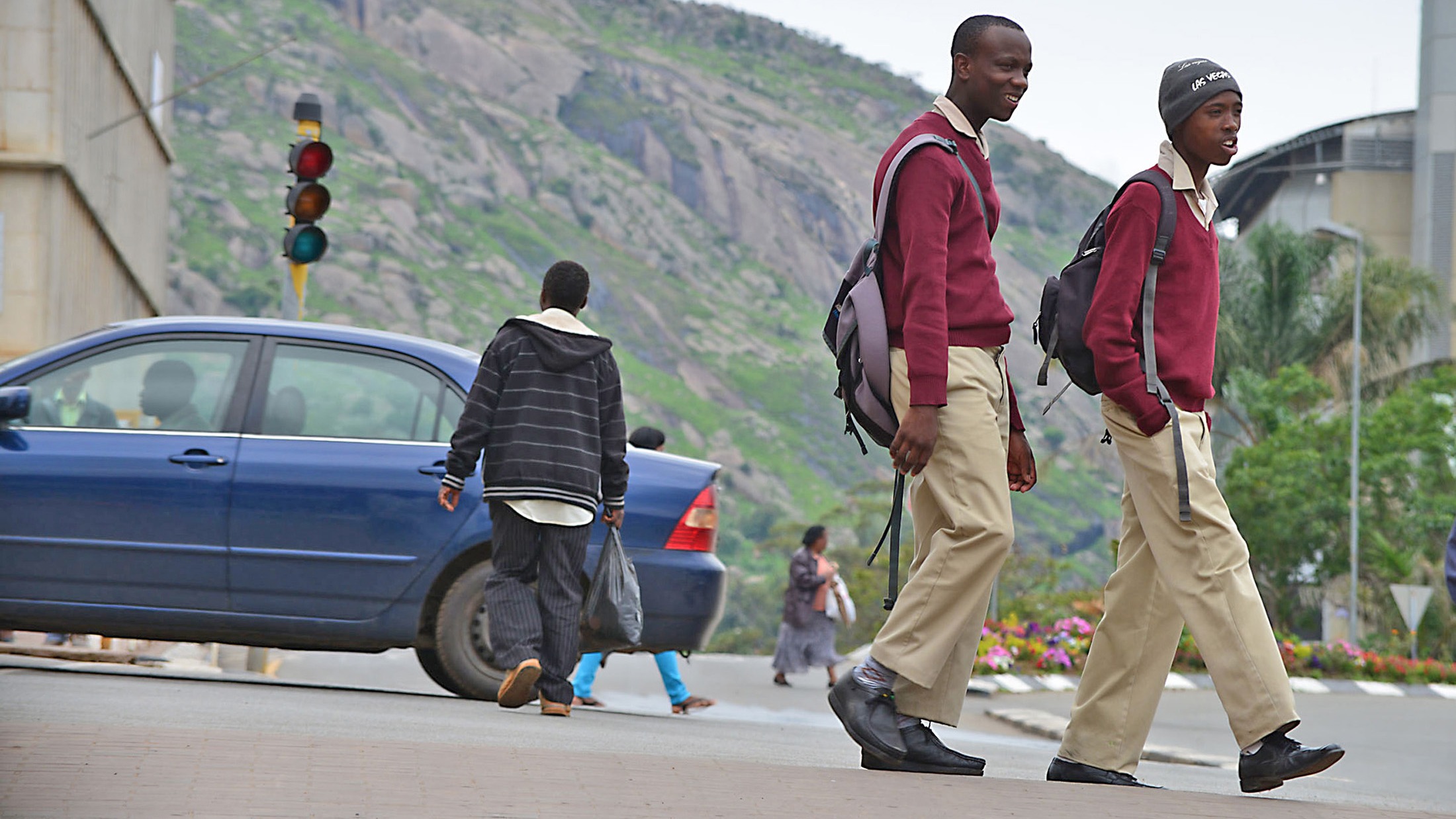The new requirements, which had been due to come into effect on 1 October, state that parents, regardless of nationality, must produce unabridged birth certificates for children travelling with them and that one parent travelling with a child must have the written consent of the other parent or a court order granting them legal guardianship.
When the regulations were announced in late May, South Africa’s Home Affairs Ministry described them as “for the safety of children, including their protection from child trafficking, abduction and kidnapping”.
However, migration experts have questioned whether South Africa has a significant child trafficking problem and if it does, whether stricter regulations are the best way to deal with it.
“I think the biggest question is whether the trafficking of children through formal ports of entry has been identified as a big problem and I haven’t seen any data to suggest that,” said Chandre Gould, a senior researcher with the Institute for Security Studies (ISS) who has researched the role of human trafficking in Cape Town’s sex work industry.
While South Africa is often described as a major hub for the trafficking of victims from within the country, the region and beyond, the extent to which these claims are backed up by evidence is limited.
The often fine line between human trafficking and migrant smuggling that takes place at South Africa’s borders has further confused the issue. For example, undocumented Zimbabwean migrants living and working in South Africa, sometimes pay taxi drivers known as malaishas to smuggle their children across the border. While most malaishas do just that, there are indications that some traffic the children they are transporting into forced labour or sex work, although such cases are very difficult to prove.
Anti-human trafficking law not yet in effect
New legislation to counter human trafficking was signed into law by President Jacob Zuma in July 2013, but the necessary implementing regulations have not been finalized and as a result, the law has yet to come into effect. Gould pointed out that one of the requirements of the new law was the establishment of a database that would track trafficking cases. In the absence of such a database, no figures are available as to the extent of trafficking into or out of South Africa.
ISS together with the African Centre for Migration and Society (ACMS) at Witwatersrand University, and fact-checking web site Africa Check produced a brief in May 2014 which states that “there is no systematic research available that provides comprehensive insight into the prevalence or patterns of trafficking into or out of South Africa or the Southern African region.”
The International Organization for Migration (IOM) noted in a 2010 report that it assisted 306 victims of human trafficking in the entire Southern Africa region between 2004 and 2010, an average of 51 cases per year.
The US Department of State’s Trafficking in Persons Report 2014 notes that “South African children are subjected to trafficking mainly within the country, recruited from poor rural areas and brought to and moved between urban centres.”
“While many children move across South African borders and many of these may require protection of some kind… I sense we should be far more careful about developing a heavy-handed and securitized approach to these concerns,” he added.
However, Yitna Getachew, regional specialist on counter trafficking with IOM, said that while reliable data on child trafficking was not available, “many victims travel legitimately, with proper documentation and end up being subjected to exploitation.”
“Documentation only, will of course not address the issue of trafficking,” he told IRIN, noting that it needed to be complemented by other measures such as law enforcement and adequate screening. “But it certainly makes the work of traffickers a bit more difficult.”
Gender issue
Gould of ISS worried that the greatest impact of the new regulations could be on single mothers who would struggle to obtain an affidavit from the fathers of their children when they wanted to travel. “Given that over 60 percent of children in South Africa grow up with an absent father, that means it becomes a gendered issue because it becomes difficult for single mothers with children to travel,” she said.
Spokesperson for the Department of Home Affairs Mayihlome Tshwete said single mothers unable to trace absent fathers could obtain affidavits to that effect from their local police station. “We are mindful of adjustments that travellers will have to make, but we think that they are the right security measures to take to protect the most vulnerable in our society,” he said, noting that besides child trafficking, there were a number of cases of children being taken out of the country by one parent without the consent of the other.
At a press briefing on Tuesday, Home Affairs Minister Malusi Gigaba emphasized that the regulations remained in place, their implementation was simply being postponed to address concerns raised by the tourism sector that travellers would struggle to comply over the busy Christmas and Easter periods.
South African parents have also complained that obtaining an unabridged birth certificate can take many months. Home Affairs began issuing unabridged birth certificates to all children born from March 2013, but parents of children born between 1996 and February 2013, have to apply for them.
ks/cb
This article was produced by IRIN News while it was part of the United Nations Office for the Coordination of Humanitarian Affairs. Please send queries on copyright or liability to the UN. For more information: https://shop.un.org/rights-permissions





